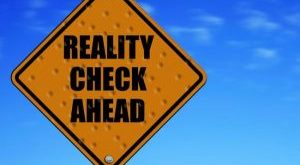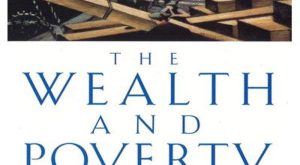Sooo…I have a bit of a confession to make- I’ve established a bit of a cottage industry tutoring students in the course I taught while I was in grad school. Not gonna lie, it’s pretty nice to be seen as an advocate as opposed to the thing between the student and the grade that the student wants, in part because students are more willing to admit what they find confusing to me than to their “real” instructors. As a related project, I figured it would make sense to create videos for the items...
Read More »Missing the point — the quantitative ambitions of DSGE models
Missing the point — the quantitative ambitions of DSGE models A typical modern approach to writing a paper in DSGE macroeconomics is as follows: o to establish “stylized facts” about the quantitative interrelationships of certain macroeconomic variables (e.g. moments of the data such as variances, autocorrelations, covariances, …) that have hitherto not been jointly explained; o to write down a DSGE model of an economy subject to a defined set of shocks...
Read More »As a related matter, never say “give me all of your money” when…
As a related matter, never say “give me all of your money” when mugging an economist: “So, like, do you mean only M1 or do I need to hand over M2 as well? Are you only counting items officially recognized as currency or are you demanding all items that could function as money? Technically speaking, fiat money has no intrinsic value so is there any chance I can convince you that this is not worth your time?” You can also see the post on the original site here.
Read More »Dangers of ‘running with the mainstream pack’
Dangers of ‘running with the mainstream pack’ [embedded content] An absolutely fabulous speech — and Soskice and Carlin’s textbook Macroeconomics: Institutions, Instability, and the Financial System — that Dullien mentions at the beginning of his speech — is really a very good example of the problems you run into if you want to be ‘pluralist’ within the mainstream pack. Carlin and Soskice explicitly adapts a ‘New Keynesian’ framework including price...
Read More »Putting predictions to the test
Putting predictions to the test It is the somewhat gratifying lesson of Philip Tetlock’s new book that people who make prediction their business — people who appear as experts on television, get quoted in newspaper articles, advise governments and businesses, and participate in punditry roundtables — are no better than the rest of us. When they’re wrong, they’re rarely held accountable, and they rarely admit it, either. They insist that they were just off...
Read More »At Google, Employee-Led Effort Finds Men Are Paid More Than Women
In case you haven’t heard, Google is the target of a class-action lawsuit based on gender discrimination. (Shocking, I know, given what we know about Silicon Valley more generally. =P) Part of the impetus for the lawsuit is an employee-led effort to collect compensation data that shows that men are paid more than women at the company, as described in the above article. From a data perspective, proving discrimination can be somewhat difficult- for example, we hear the often-quoted “women make...
Read More »Economic growth and gender
Economic growth and gender The economic implications of gender discrimination are most serious. To deny women is to deprive a country of labor and talent, but — even worse — to undermine the drive to achievement of boys and men. One cannot rear young people in such wise that half of them think themselves superior by biology, without dulling ambition and devaluing accomplishment … To be sure, any society will have its achievers no matter what, if only...
Read More »Stiglitz and the full force of Sonnenschein-Mantel-Debreu
In his recent article on Where Modern Macroeconomics Went Wrong, Joseph Stiglitz acknowledges that his approach “and that of DSGE models begins with the same starting point: the competitive equilibrium model of Arrow and Debreu.” This is probably also the reason why Stiglitz’ critique doesn’t go far enough. It’s strange that mainstream macroeconomists still stick to a general equilibrium paradigm more than forty years after the Sonnenschein-Mantel-Debreu theorem — SMD —...
Read More »IPA’s weekly links
Guest post by Jeff Mosenkis of Innovations for Poverty Action. In The New Yorker, John Cassidy reviews a new free online open-source economics textbook, The Economy. From an international collaboration of economists, it focuses on newer, post-financial crisis ways of thinking about and teaching economics. Case Western economist Justin Gallagher documents the bizarre fight he went through to get one research group at the University of Texas to turn over the public state data set it was...
Read More »IPA’s weekly links
Guest post by Jeff Mosenkis of Innovations for Poverty Action. In The New Yorker, John Cassidy reviews a new free online open-source economics textbook, The Economy. From an international collaboration of economists, it focuses on newer, post-financial crisis ways of thinking about and teaching economics. Case Western economist Justin Gallagher documents the bizarre fight he went through to get one research group at the University of Texas to turn over the public state data set it was...
Read More » Heterodox
Heterodox





